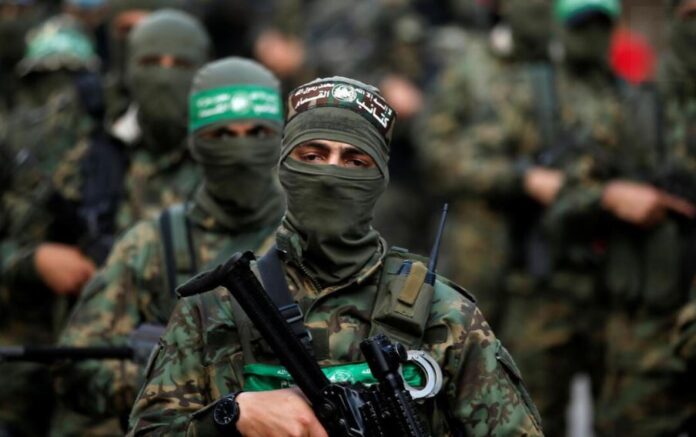Gaza Strip – Hamas is facing a deepening financial crisis, unable to pay its operatives, including senior terror leaders, in Gaza due to a severe cash shortage, the Wall Street Journal reports. The group’s economic woes, worsened by Israel’s tightened restrictions on humanitarian aid and ongoing military operations, are crippling its ability to sustain operations.
According to Arab, Israeli, and Western officials, Israel’s blockade has limited Hamas’s ability to profit from selling diverted aid. Arab intelligence sources reveal that Israeli offensives have killed or driven underground key figures responsible for distributing funds. As a result, employees of Gaza’s Hamas-led government have gone unpaid, senior operatives received only half their salaries during Ramadan, and rank-and-file fighters are getting $200-$300 monthly.
Also Read: Russian Drone Strike Kills Three, Including Child, in Ukraine’s Dnipro
The financial strain comes amid complex hostage negotiations. U.S. hostage envoy Adam Boehler, who held direct talks with Hamas earlier this year, offered to free 100 Palestinian prisoners serving life sentences in exchange for Israeli-American hostage Edan Alexander and the remains of four Americans. Boehler insists the offer was coordinated with Israel, but an Israeli official told The Times of Israel that Jerusalem was not informed, fueling tensions with Strategic Affairs Minister Ron Dermer. Hamas accepted Boehler’s deal on May 14, but leaks about the talks prompted the U.S. to shift to a new proposal mediated by Qatar and Egypt. “Hamas has been moving too slowly,” Boehler told Al Jazeera.
Before January’s ceasefire, Hamas raised funds by taxing merchants, charging trucks at checkpoints, and reselling seized goods. It also used overseas funds to purchase aid for resale in Gaza. With its finances now strained, Hamas’s operational strength is increasingly at risk.
Key Points: Hamas Faces Cash Crunch in Gaza
- Financial Crisis: Hamas is struggling to pay its operatives, including senior terror leaders, in Gaza due to a worsening cash shortage, as reported by the Wall Street Journal.
- Impact of Israeli Actions: Israel’s blockade on humanitarian aid and ongoing offensives have disrupted Hamas’s revenue from selling aid and killed or displaced key fund distributors.
- Payment Disruptions: Gaza’s Hamas-led government employees are unpaid, senior operatives received half wages during Ramadan, and fighters get $200-$300 monthly.
- Hostage Talks Controversy: U.S. envoy Adam Boehler’s offer to free 100 Palestinian prisoners for hostage Edan Alexander sparked tensions, as Israel claimed it was uninformed despite Boehler’s claim of coordination.
- Delayed Deal: Hamas accepted Boehler’s proposal on May 14, but leaks led the U.S. to pivot to a new offer via Qatari and Egyptian mediators, with Boehler noting Hamas’s slow response.
- Revenue Sources: Before January’s ceasefire, Hamas funded operations by taxing merchants, charging trucks, seizing goods, and reselling aid bought with overseas funds.



